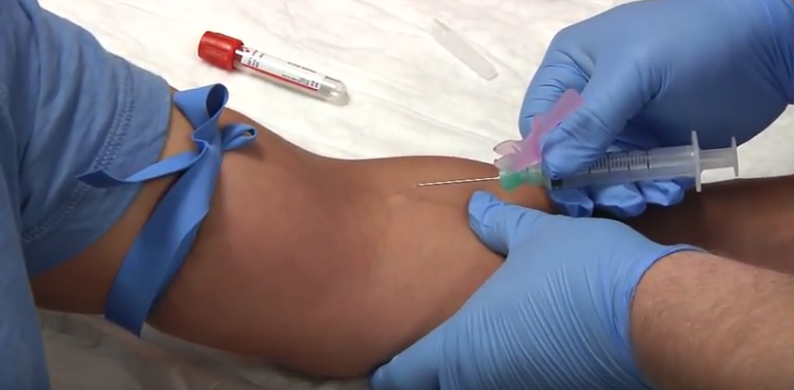Forced Blood Test after Missouri v. McNeely, 133 S. Ct. 1552 (2013) in Florida

Prior to Missouri v. McNeely, 133 S. Ct. 1552 (2013), law enforcement officers in Florida would ask for a voluntary blood draw of a driver suspected of DUI if the case involved a crash with serious bodily injury or death.
If the suspect refused, the officers would use Florida Statute 316.1933 as a basis to conduct a forced blood draw either at the scene in an ambulance or at the hospital. In most cases, the officers would not obtain a warrant prior to the forced blood draw and the taking would occur prior to any arrest.
Such takings were usually considered to be constitutional under the theory that the case involved an exception to the warrant requirement because the dissipation of alcohol is an exigent circumstance.
That assumption changed with the Supreme Court’s decision in Missouri v. McNeely, 133 S. Ct. 1552 (2013). Now, criminal defense attorneys throughout Florida are filing motions to suppress in forced blood cases without a warrant.
The motions allege that the blood test evidence must be suppressed or excluded at trial when the sample was taken during a forced and warrant-less blood draw, before any arrest, without either consent or exigent circumstances.
The motions allege that the taking of blood without a warrant is in violation of the Fourth Amendment of the U.S. Constitution, Article I, Section 12 of the Florida Constitution, and the decision of the Supreme Court of the United States in Missouri v. McNeely, 133 S. Ct. 1552 (2013).
DUI defense attorneys in these cases are also filing motions alleging that Florida Statute Section 316.1933 is unconstitutional, on its face and as applied, since it purports to permit a warrant-less forced blood draw before an arrest and without any exigent circumstances or consent.
In the alternative, it is often alleged that Florida Statute Section 316.1933 doesn’t apply because the officer that ordered the forced blood draw didn’t have probable that the person was actually driving, was involved in the crash, or was impaired by alcohol or any chemical or controlled substance.
In many of these cases, the DUI defense attorney will also argue that the blood test violated the provision in Florida 316.1933 that requires that the blood test “shall be performed in a reasonable manner.”
Cases involving a forced blood draw without a warrant are also problematic because once the sample is taken, no exigency exists. At that point, officers could obtain a warrant before taking the sample from the scene and performing testing on the sample to determine its alcohol or drug content.
Furthermore, without consent, the person tested has not waived patient record confidentiality with respect to the results of any blood test for purposes of determining its alcoholic content.
In a series of blog posts, we will explore each of these issues in more detail.
The attorneys at Sammis Law Firm in Tampa, FL, are experienced in fighting felony DUI blood test cases throughout Hillsborough County and the surrounding areas in Tampa Bay.
1 comment
Leave a Reply Cancel reply
Free Consultation
Submit this form to request a free and confidential consultation with one of our attorneys.
Our Office Locations
Tampa Office:
Sammis Law Firm, P.A.
1005 N. Marion St.
Tampa, FL 33602
(813) 250-0200
New Port Richey Office:
Sammis Law Firm, P.A.
7509 Little Rd.
New Port Richey, FL 34654
(727) 807-6392
Clearwater Office:
Sammis Law Firm, P.A.
14010 Roosevelt Blvd. #701
Clearwater, FL 33762
(727) 210-7004







What ever happened to the right not to give evidence against yourself.
Goes something like, I have the right to remain silent, If I give up these rights any thing I say or do can be used against me in a court of law. (But if I submit it can and will be used against me in a court of law)
In my opinion, the police are already violating your rights by forcing a person to take a breath test by threat and punishment of and exacting retribution for refusing. If a person can be punished for exercising their rights under the law and the constitution, how can a government entity exact punishment for it. It’s like a catch 22 situation, Damned if you do and Damned if you don’t. A person may be afraid of contracting an airborne disease knowing that 100″s of people have already blown their breath into it.